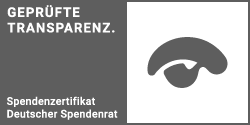#WomenHumanitarians: ''Every contribution is valuable in humanitarian aid, regardless of how small or big''
An interview with one of our female project managers for Malteser International’s maternal and infant health programs in Myanmar
How did you get into humanitarian aid? And why did you become a humanitarian aid worker?
While studying in the university, I came across news reports about developing countries like Myanmar. These reports of suffering and poverty reminded me of the struggles I witnessed in my hometown and how people were badly affected. I then made it my goal to work for an international aid organization and help communities in need.
It was a challenge convincing my parents who wanted me to work as a doctor in a clinic or start my own consultancy. To appease them, I had to work in a clinic as a medical doctor for a few months.
Are there specific moments in your career in which your gender played an important role— positive or negative?
The positive aspect of my gender is that I connect more to the women in the communities than my male colleagues. The women actively participate in our projects I am involved. I also think they see themselves in me and open up to me about their needs.
On the negative side, I have had some challenges in the work environment, especially when it comes to relations with male-dominated stakeholders. There have also been times when I could not attend meetings or even had to abandon stakeholder coordination meetings due to gender safety and security issues.
What stereotypes of women annoy you in your line of work?
The stereotype of women as not being able to handle problem in a straightforward manner is annoying. Some colleagues also think female colleagues tend to cry easily. That annoys me too as well.
Did you ever fear for your life? How did your colleagues help in those situations?
Actually, I never fear for my life. As a woman, I feel like I connect well with other genders. However, for security reasons, I don’t travel alone. My colleagues are always there to offer support and help me overcome language barriers and other security concerns.
What would you say to other young women planning a career in humanitarian aid?
I would tell them that their every contribution is valuable in humanitarian aid, regardless of how small or big. Don’t hesitate to take your first step. You will surely face many challenges, but with empathy would help you can overcome these challenges.
Finally, what does being a humanitarian aid worker mean to you as a woman?
As a humanitarian, I believe I must work for human beings, and not for my ego or any religious and ethnic conviction. Human rights is paramount for me.
August 2019, written by Michael Etoh








